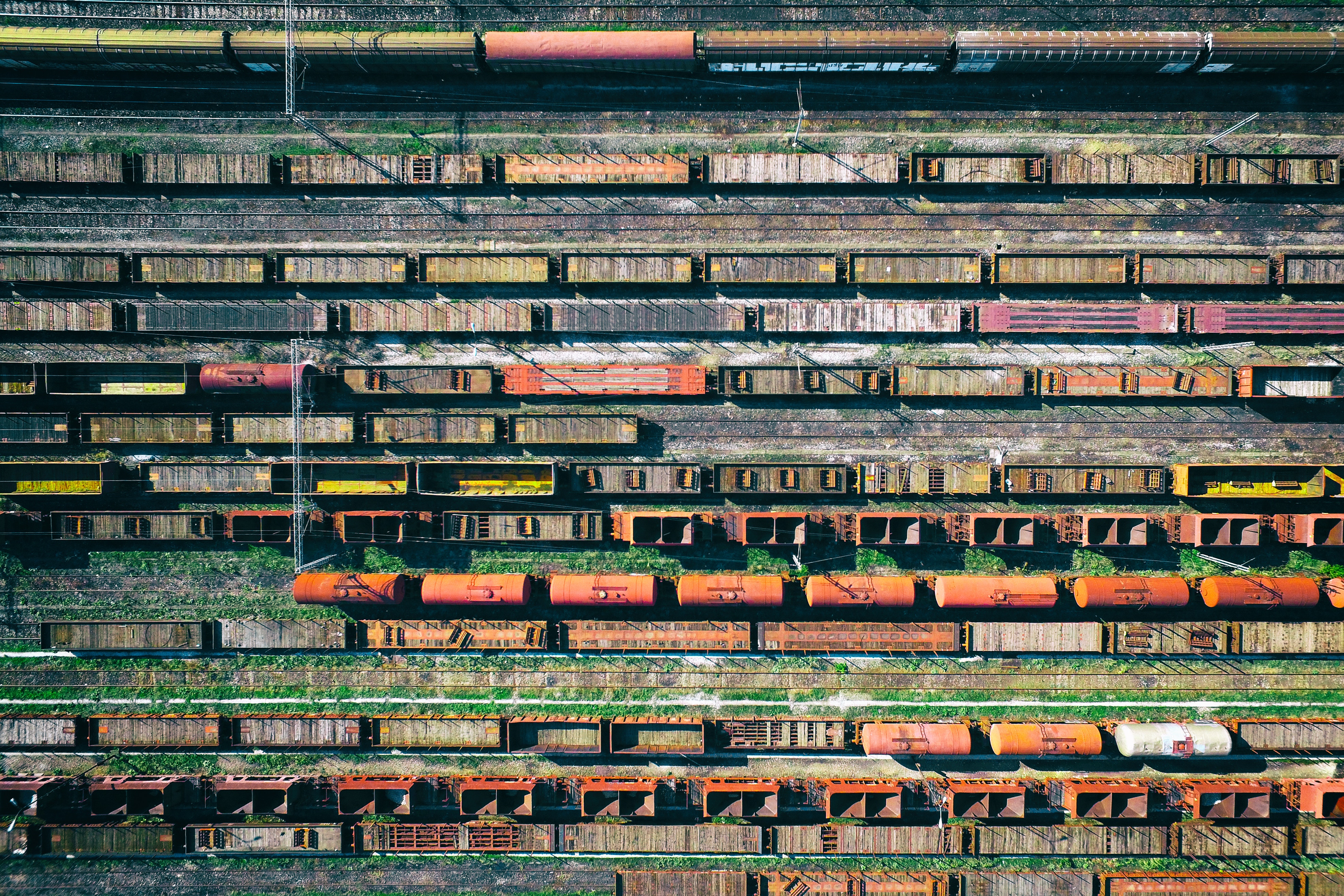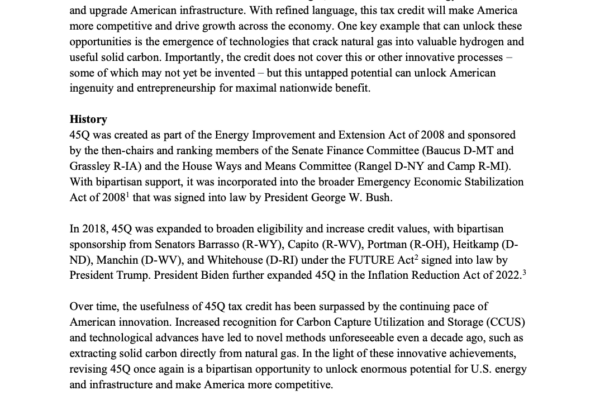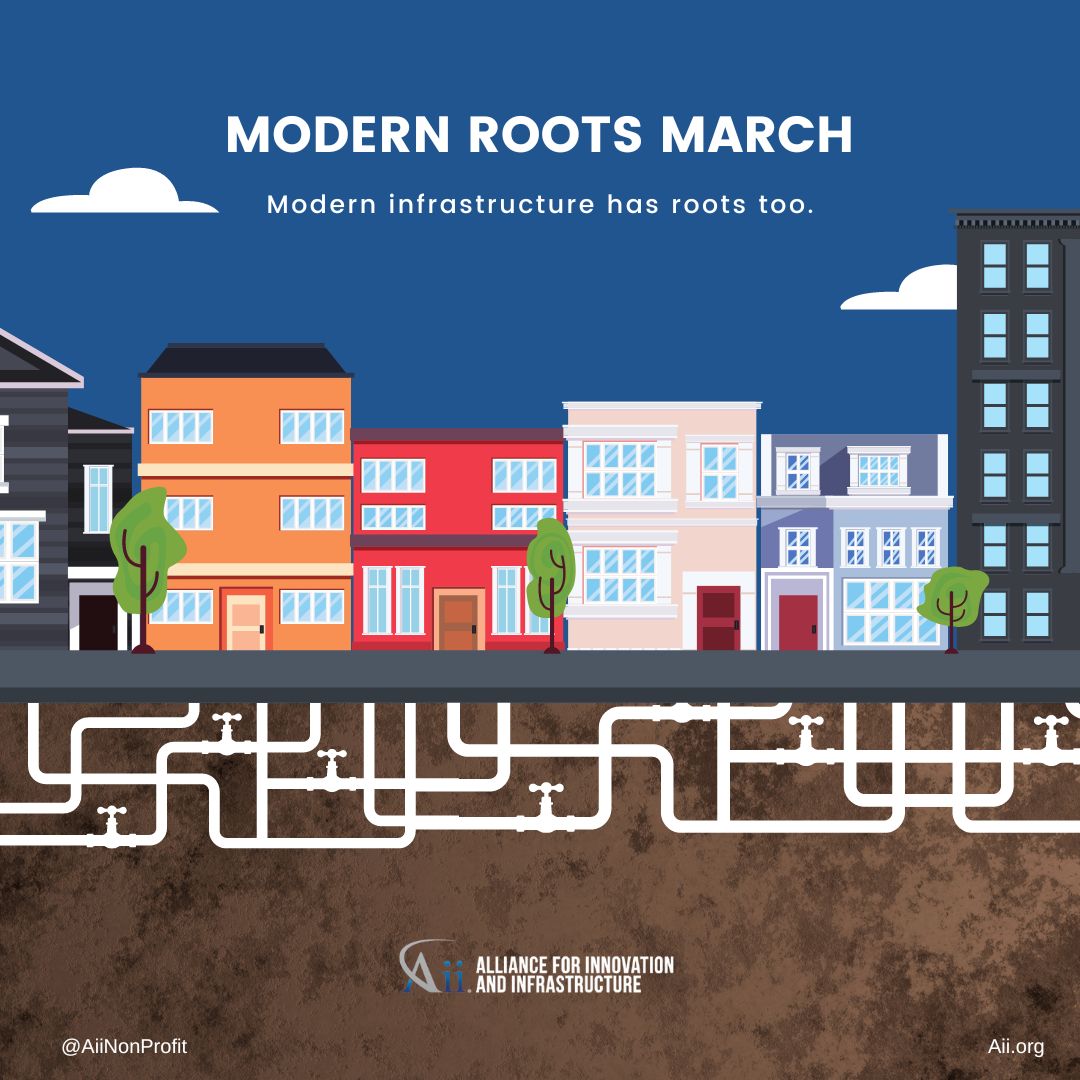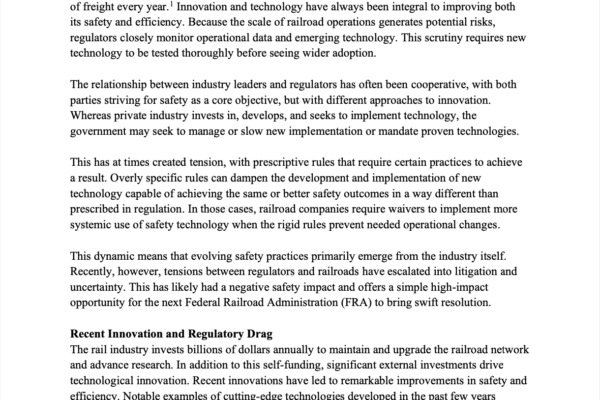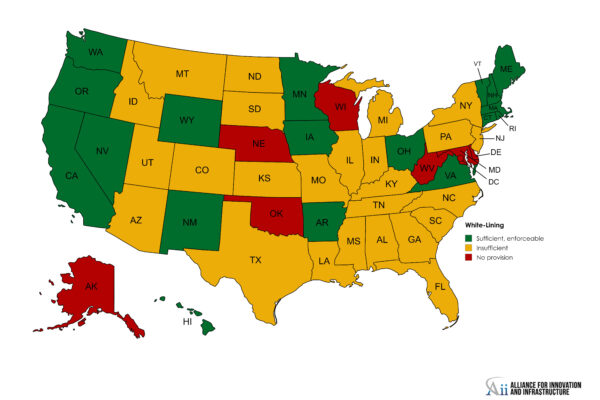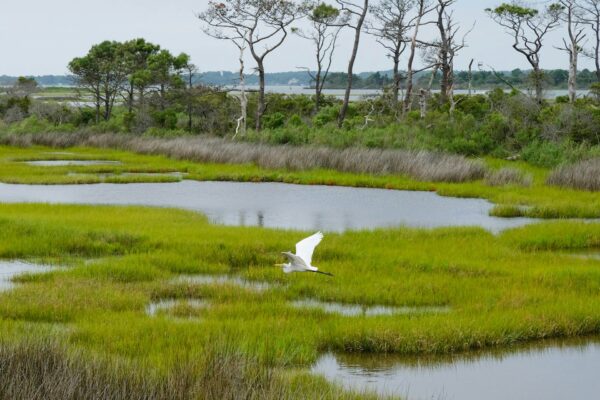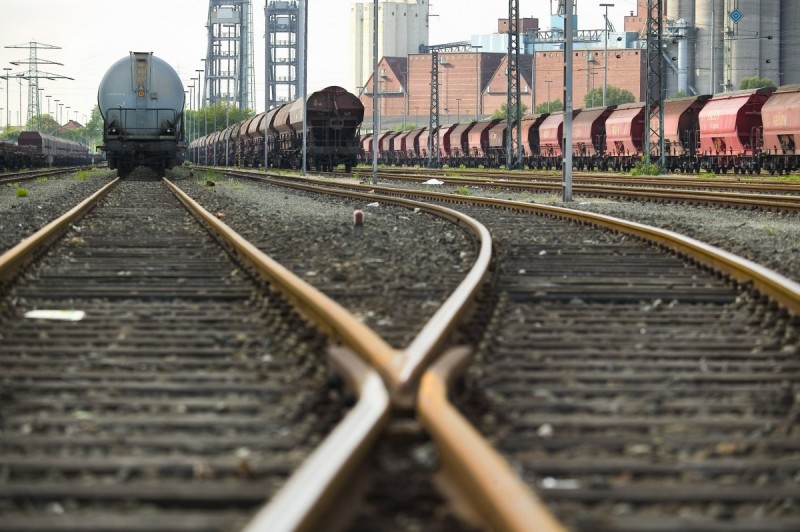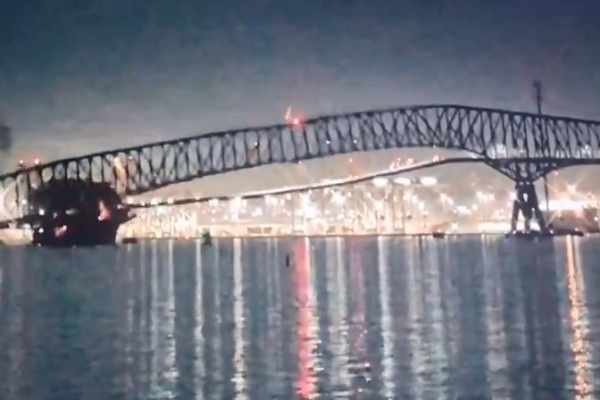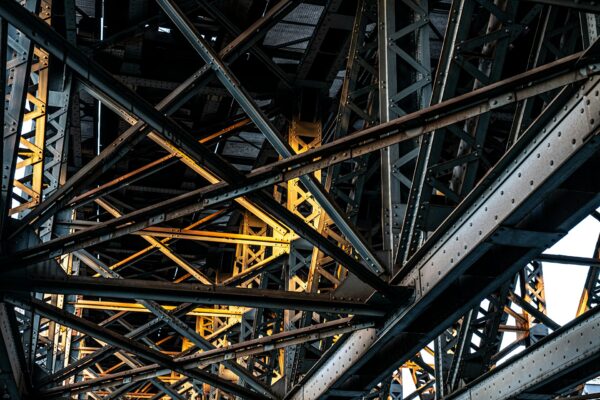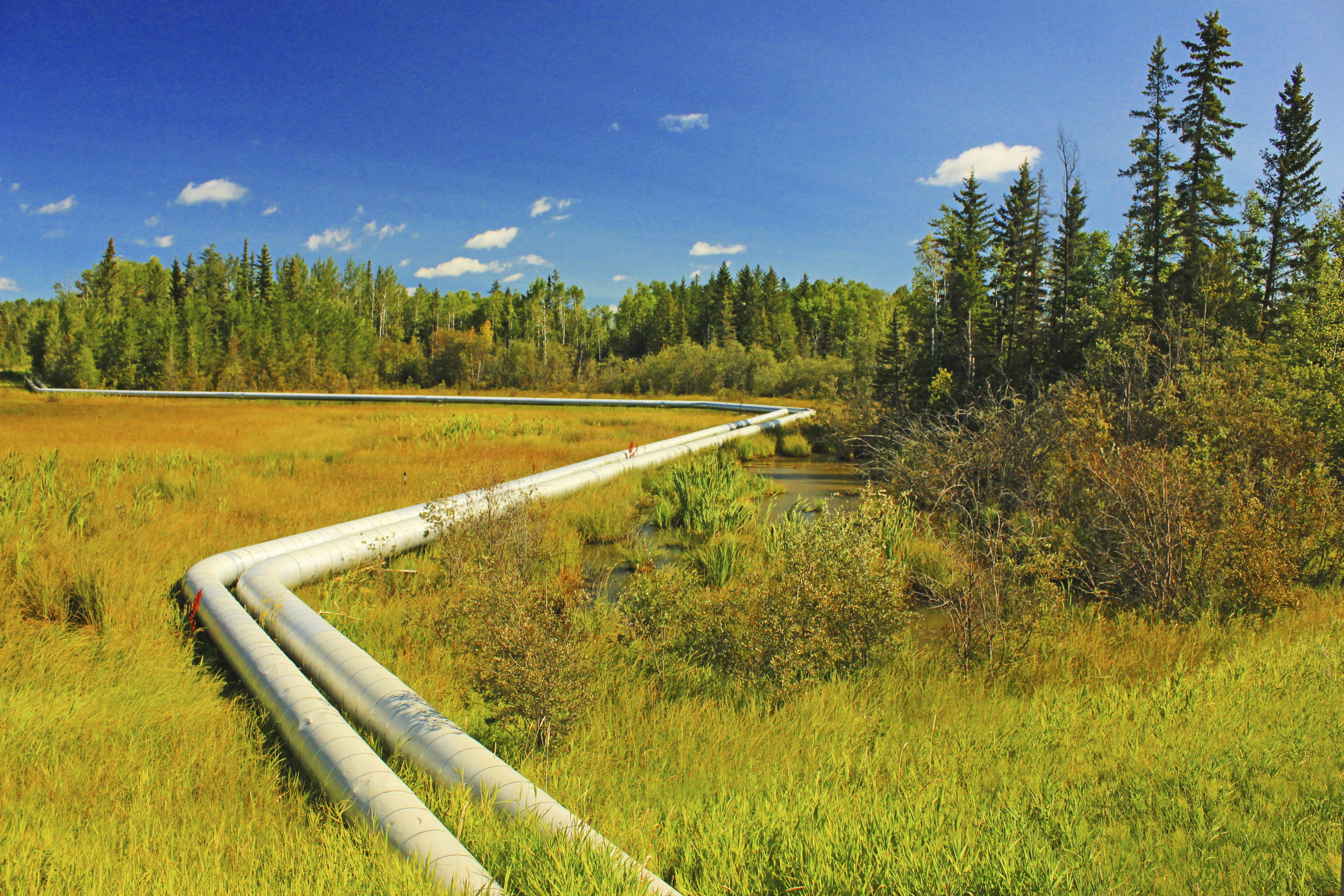In a sector as industrial and heavy duty as railroading, public policy must ensure safety for employees and the public. One key to achieving continual […]
Read MorePost Tagged with: "Dierker"
New Brief Reveals Untapped Potential of 45Q Carbon Capture Incentive
FOR IMMEDIATE RELEASE Contact: Andrew Jefferis, Aii Media Coordinator, ajefferis@aii.org Unlocking America’s Energy Future: New Brief Reveals Untapped Potential of 45Q Carbon Capture Incentive […]
Read MoreSponsor Modern Roots March to Engage and Elevate Damage Prevention
Unlocking Rail Safety: Aii Policy Brief Highlights Technology-Driven Solutions
Press Release FOR IMMEDIATE RELEASE December 3, 2024 Unlocking Rail Safety: Aii Policy Brief Highlights Technology-Driven Solutions The Alliance for Innovation and Infrastructure (Aii) […]
Read MoreHydrogen’s Infrastructure Liability is the Very Asset to Jumpstart Demand
Development of scalable hydrogen has a critical liability – infrastructure. Despite growing interest and federal incentives, achieving large-scale, centralized production of hydrogen is simply infeasible […]
Read More50-State Report Card Shows Great Room for Improvement
In today’s world, daily reliance on buried infrastructure is unprecedented. Beneath our feet lies an intricate network of pipes, cables, and wires—powering our homes, fueling […]
Read MoreAn All Nuclear Future?
Energy is among the most important topics in the world. It enables us to have safe water and food, powers our transportation, facilitates modern medicine, […]
Read MoreImproving the Safety of Pipeline Water Crossings
While oil spills and pipeline leaks grab headlines, their notoriety is generally a sign of the rarity of accidents. The accidents that do occur can […]
Read MoreAvoiding the Infinite Regress of Decarbonization
The question of when and how life began creates a series of conundrums for many. Pointing to extreme ideas like aliens seeding life on Earth […]
Read MoreFRA Misunderstands Aii Analysis
This month, the Federal Railroad Administration (FRA) issued a long-awaited final rule on crew sizes. A similar rule had been proposed a decade before, withdrawn by […]
Read MoreQuick Facts: Baltimore Bridge Collapse
Baltimore’s Francis Scott Key Bridge collapsed early this morning Livestream video captured the moment a cargo ship collided with one of the bridge’s support columns, […]
Read MoreBefore Safe Digging Month… The Why!
Safe Digging Month is a monthlong collaborative project throughout April to educate and raise awareness for safe digging and utilizing the 811 “call before you […]
Read MoreInfrastructure Upholds Us, What Upholds It? Steel.
When we think about the modern economy and the world we interact with, it is easy to overlook the very things making it possible. Infrastructure […]
Read MoreA Matter of Eminent Importance
Aii Applauds Bipartisan Safety Commitment in PIPES Act
For Immediate Release December 8, 2023 Contact: Benjamin Dierker, bdierker@aii.org Aii Applauds Bipartisan Safety Commitment in PIPES Act WASHINGTON, D.C. (December 8, 2023) […]
Read More